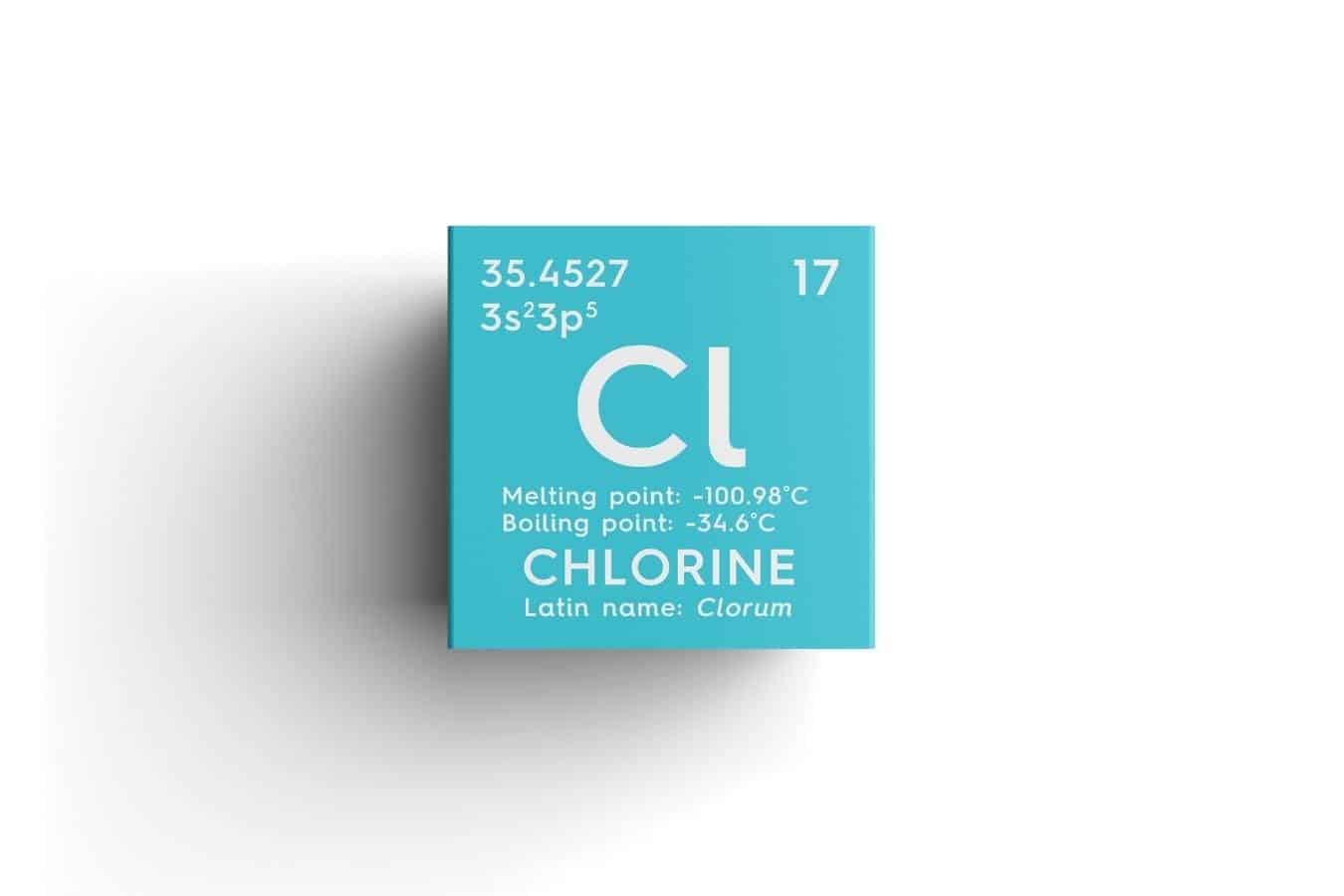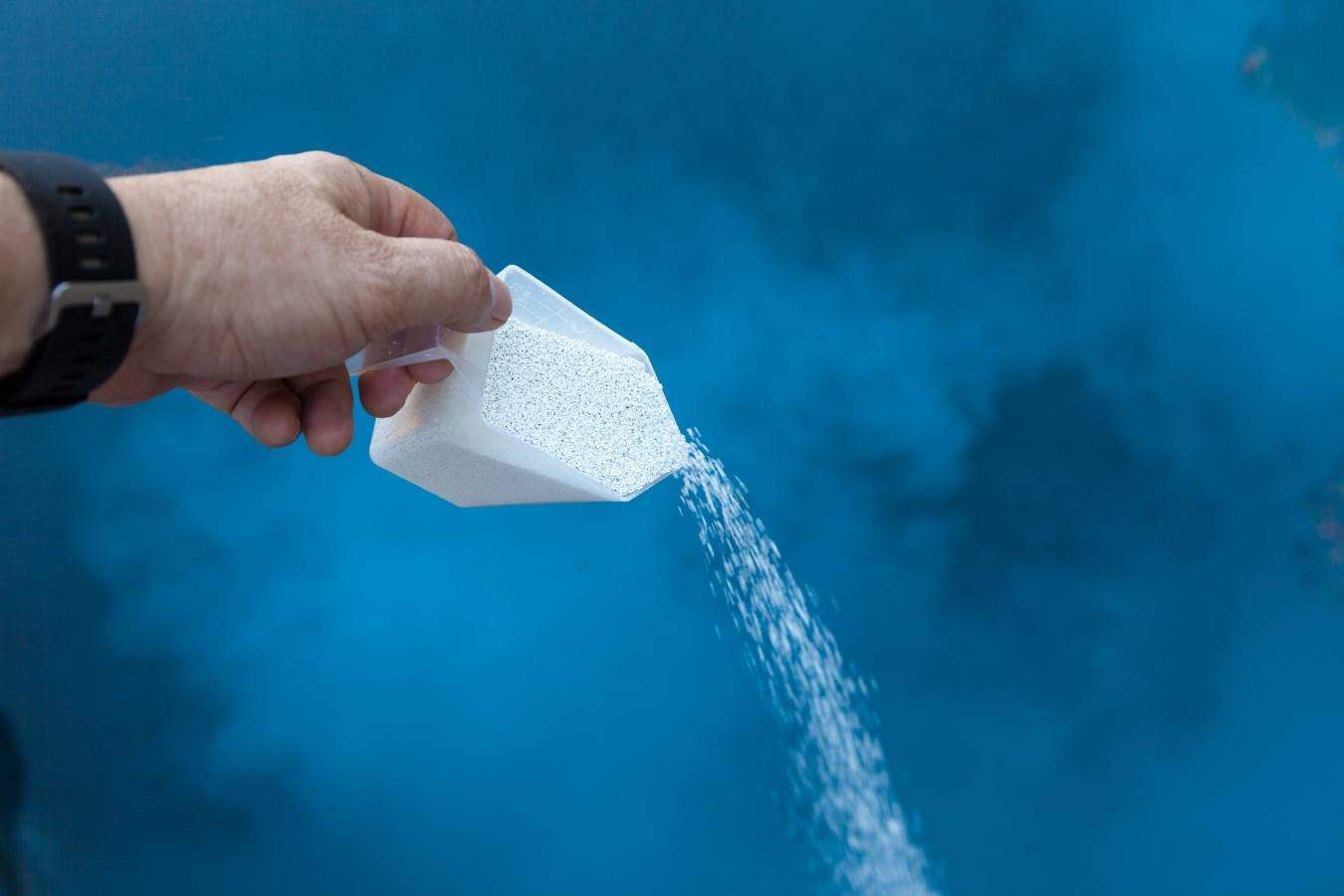If you have color-treated hair, you’ll find many warnings telling you to stay away from chlorinated swimming pools. But does chlorine remove hair dye?

Chlorine is a bleach that removes hair dye. It’s a component of sodium hypochlorite, the active ingredient in household bleach.
Chlorine significantly fades hair color, and you can accelerate the process by exposing your hair to the sun after application.
However, stronger concentrations damage the cuticle and break down hair.
Read on for more.
Is Chlorine Good Or Bad For Hair?
Given that there’s a lot of advice about protecting your hair from the effects of chlorine, it’s not surprising to conclude that chlorine is not good for hair.
Many people can attest to the damaging effects of chlorine after one too many swims without protecting their hair.
Chlorine is added to swimming pools and water because it’s an antibacterial agent.
However, this element disrupts hair health in the following ways:
Discoloration
The most common effect of chlorine on hair is discoloration or the dreaded greenish tint.
This happens because chlorine reacts with the copper minerals in water to form a green film that coats your strands.
This film binds to proteins in your hair, causing your strands to turn green.
Dryness
Chlorine strips the natural oils from your hair, leaving it dry and rough. Without its natural oils, your hair is no longer sleek and healthy.
In addition, when chlorine binds to minerals such as copper and sodium, it converts these minerals into salts that also strip moisture from your hair.
Oxidation
Chlorine is a strong oxidizer, and it reacts with the elements in your hair, weakening your strands.
Chlorine is also a slightly charged element that alters the electrical charge of minerals in your hair.
When the minerals become charged, they are difficult to remove and damage or discolor hair.
Cuticle damage
Chlorine is a bleach that damages the cuticle, making your hair less shiny and dry.
Your hair is mainly made of protein, while chlorine is part of sodium hypochlorite, a strong and effective disinfectant that also denatures/kills protein.
In addition, color-treated hair has high porosity, so it quickly absorbs chlorine, leading to more damage.
The hair becomes over-processed, dry, and brittle. Hair breakage and split ends may result when you comb, brush, or style your hair.
It’s safe to say that chlorine and your hair are not the best of friends. In a nutshell, chlorine sucks moisture from your hair.
It also causes discoloration and chemical changes that damage and weaken hair.
Also, check out how to remove hair dye using Selsun Blue.
Does Chlorine Remove Hair Dye?

As mentioned, chlorine is a bleach, so it’s needless to say it can remove hair dye.
Not only that, but it’s one of the most effective methods for removing hair dye, depending on the strength of your solution.
The only downside is that bleaching is harsh and damaging to your locks.
However, you can always use a mild solution when stripping hair dye.
Since the concentration is too low, there’s usually no noticeable effect unless you expose your hair to sunlight to activate the chlorine.
According to one study, which looked at the effect of chlorinated water on virgin dark brown hair, virgin blond hair, and bleached hair, chlorine can cause significant color changes.
For instance, the dark brown hair became redder while the bleached hair became less red.
However, the effects were more pronounced after irradiating the chlorine solution with UV radiation. As a result, there was more damage to the hair and the hair color.
So, exposing your hair to the sun after applying chlorine can accelerate the dye removal process.
However, while chlorine is known to remove melanin to lighten your hair color, there’s no telling the effect it might have on artificial pigments.
For instance, if you’re looking to fade dark blue or purple hair color, you may end up with a completely different color like pink.
What’s more, chlorine can oxidize the minerals in your hair, giving it a green tint.
Should I Use Chlorine To Remove Hair Dye?

No, you really shouldn’t.
Strong concentrations of chlorine can damage hair and if you don’t rinse it all out, chances are the chlorine will continue interacting with and damaging your hair.
If you’re worried about the damaging effects of chlorine, you can always explore gentler methods first, such as clarifying shampoo or baking soda as this helps fade your color more.
Disclaimer: This site is not intended to provide professional or medical advice. All of the content on LovedByCurls.com is for informational purposes only. All advice should be followed at your own discretion. Ingredients may change at any time so always check the product label before using. Check our full disclaimer policy here.
